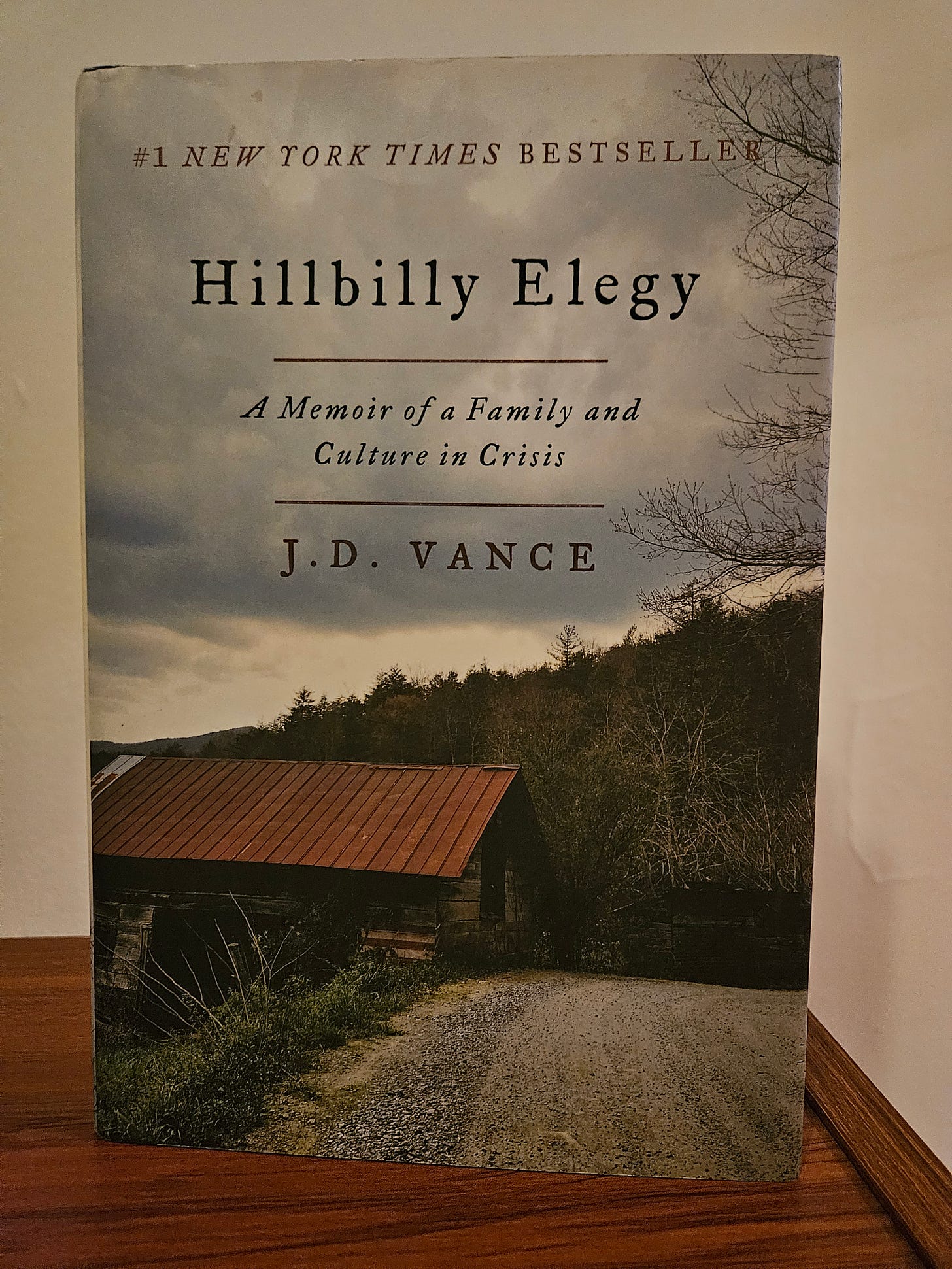I grew up in rural poverty. JD Vance doesn't speak for me.
Hillbilly Elegy ignited conversations about class but a lot has changed since then
America has many blind spots when it comes to conversations about class. I’ve seen them firsthand, especially since my mom worked in fast food for most of my adolescence. Society functions in ways that minimize candid conversations about class, often as a way to ease the discomfort of the wealthy. Schools, neighborhoods, restaurants, and religious institutions all exist in a way that highlight structural class issues. It’s widely known that individuals’ zip codes can determine their health—and ultimately, future—and yet this hasn’t prompted real, systemic change to help those who need it most.
After Hillbilly Elegy: A Memoir of a Family and Culture in Crisis came out in 2016, I saw how Vance helped ignite important conversations about class. The fact that these conversations were finally happening on such a national scale was noteworthy, but I never felt truly represented. His complaints often boiled down to his lack of class and social status rather than amplifying the very real financial struggles of so many rural Americans.
It's not that Vance didn't struggle at all but his memoir—and subsequent political career—prove it’s his quest for power and popularity that matters to him most, which is more reflective of his deep-seated anxieties around lacking status versus simply money.
My home state borders the Ohio that Vance famously elegized with a complicated but powerful tribute less than a decade ago. But while he once acted as a voice for an area often ignored, this voice now is shrouded in ignorance. His representation shouldn’t be the defining example of rural America—especially when his issue wasn’t his lack of wealth but rather his class anxiety and a desperation to be remarkable at any cost.
Vance’s childhood may not have been easy but it also wasn’t as dire as many people’s struggles in rural America. His overblown reputation for representing everyday Americans came at the expense of those with their own struggles. At times, he acknowledges the cultural issues at play in his family, such as addiction, and he seemed to have more compassion for the working class before joining Donald Trump’s ticket, but his book still offers scathing critiques of those he judges or deems to abuse the welfare system with no evidence other than his own personal views.
During this election cycle, it has become clear that Vance’s main issue wasn’t poverty but rather being an outsider who desperately wanted to fit in. He had more access to little luxuries than a lot of the people he pretends to represent. But ultimately, he didn’t have the accomplishments he salivated over in the introduction to his book.
The recent headlines about Vance, including both his cruel attacks on people he perceives as different and his unfiltered and juvenile faux pas, highlight his insecurity of being perceived as an outsider. It’s an identity that he wears for protection but also one that seems to give him an inferiority complex. In the introduction to Hillbilly Elegy, he states that he will be the first to admit that he has “accomplished nothing great in my life.” After bragging about graduating from Yale Law School, he writes, “I am not a senator…”
After his memoir hit the best-seller lists, he was able to quickly become relevant. It was precisely this outsider persona that helped him secure status. Watching his trajectory, it is clear he overstated his struggle, and perhaps it wasn’t even intentional, but just because he felt so entitled to have more. He has, in his memoir, typical talking points of exaggerated misery, causing more of a divide. He laments that he saw “our drug-addict neighbor would buy T-bone steaks, which I was too poor to buy for myself but was forced by Uncle Sam to buy for someone else.” He writes openly about other people he claims he sees abusing the welfare system. But he is the one trying to scam America.
His “childless cat ladies” smear is a way to degrade people living a life outside the stereotypical elite lifestyle that he envisions. The efforts at bipartisanship, like after the East Palestine train derailment, are gone, replaced by cheap political takedowns. When I wrote about the devastating train derailment in 2023, I was pleased that there was bipartisan efforts happening to help the residents. When I talked about my piece on CNN, the one thing I kept stressing was how important bipartisan efforts were after this tragedy. Now, it seems that Vance is no longer interested in that unity.
Many Americans struggle financially and need extra assistance, even those who work, and that isn’t something that he seems to understand. Perhaps that’s because of his upbringing. His mother worked as a nurse, which remains a respectable, remunerative profession in working class America. It seems that much of his financial strife was due to her addiction rather than low pay. In his book, his complaints sometimes centered around receiving name-brand clothing only for Christmas. To this day, some rural folks still lack indoor plumbing, not to mention air conditioning, which has become more of a necessity as climate instability increases.
Despite acting as a voice for the rural poor, it seems to be impossible for Vance to understand the nuanced financial predicaments that exist for so many. There are people who struggle with money mismanagement and then there are people who simply don’t have access to enough money to mismanage it at all. Vance regularly critiques people for their diets, perceived or otherwise. Access to quality foods is vital, but for many people, simply having access to food is a struggle. Food banks around the nation have been struggling to keep up with demands, especially post-pandemic.
As people often say where I’m from, there is a difference between being poor and being broke. There’s also a difference between being left out because someone is from a different class and being left out because someone doesn’t know how to interact with others, which seems to be the case for Vance.
Ultimately, Vance’s issue isn't poverty. It's class. And while he once lacked it in childhood through his “hillbilly” upbringing, he now lacks it through his own actions, and he doesn’t represent me or so many of the people who I know and love.
Check out my new piece in Business Insider, “I was the last generation in college without a smartphone.” You can find more of my recent work here.







Great job. Very informative!
You got to the heart of it, Vanessa. Like most people who lived on the coasts, I was fascinated by his book when it was released. Shortly after, though, as I spent a lot of time in the middle of the country, especially in the regions he wrote about, I heard many people express their distaste for the book and how it misrepresents them. This was in 2017, long before he became political. Even so, that summer I remarked to some of my friends in Ohio that my best guess was that he wrote the book to launch a new career as a VC in Silicon Valley, but that one day he would return to Ohio and run for Congress. And here we are. I still talk to some of my friends in Ohio and Kentucky about their growing distaste.